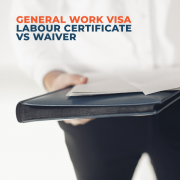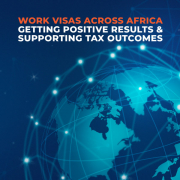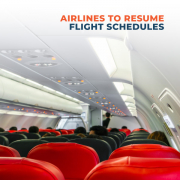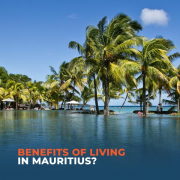Simple examples of why permits need tax advice, and vice versa
There are plenty of “schoolboy error” examples all over Africa, where an incorrect permit application has caused adverse consequences on fiscal areas, to mention two –
- Short Term Work Visa. The South African section 11(2) visa is issued where a foreigner comes to South Africa for a short period and the purpose of the visit is “work” as opposed to only “business”. We have been called in a number of times where foreigners have entered South Africa on the pretence of “business”; but were then caught behind a desk in South Africa; being arrested and facing deportation. These 11(2) visas take only 10 days to obtain and are issued for 3 months, with a possible 3-month extension thereafter. Who should be the employer on this visa? Where the foreign employer is noted for issuing purposes, this creates a “permanent establishment” risk from a tax perspective; especially where the 3 months are extended to 6 months and / or where a number of these short-term expatriates enter South Africa. Where a South African resident employer obtains this permit, or perhaps a subsidiary or local agent, does the expatriate qualify for the dependent personal services relief in article 15(2) of most Double Tax Agreements?
- Permanent residency. There are mechanisms to fast track South African “permanent residency” status, especially where the expatriate is well qualified or have an investment to make. This is a sought-after commodity for many expatriates, as it provides the expatriate and their family with long term certainty on their right to reside. That being said, what are the tax residency and exchange control implications of going on record as having an intention to stay permanently and indefinitely in South Africa?
How welcome are expatriates in South Africa and across Africa?
There are plenty of horror stories, but the day-to-day experience is something completely different. Where a correct permit application process is followed, using the correct channels and being proactive in fulfilling the requirements, a positive outcome is the norm. This position applies not only to South Africa, but across Africa. The consensus is that expatriates which bring special skills and investments are welcome; whilst those who pose any threat to local employment can generally expect to be met with resistance. This means the category of the permit and advice on formalities must be done on a first-time correct basis. A good work permit strategy is also to always have a “Plan B”, in other words, if anything goes inadvertently wrong your strategy must be in place.
We do not expect this to change post Covid-19, as companies will be under renewed pressures and that necessarily requires those critical skills. Governments will also be under pressure to compete for investments, including various Africa infrastructure projects, health services, agriculture etc., thus making expatriate processes unnecessarily difficult is simply counter-productive.
Free Trade Agreements
As novel as the methodology may be and despite considerable talk and plans around these agreements and the visa free movement of individuals, the actual implementation hereof is not anticipated soon. South Africa, as an example, desperately needs farm workers to support certain commercial farming sectors. We assist various commercial farmers to obtain corporate visas to allow the employment of farm labourers; a sector which will significantly benefit from a free trade arrangement, including from a labour perspective.
Work visa challenges and strategies
These differ from one Africa location to the next and often depends on whether the underlying law is based on English, French or Portuguese legal principles; as this directly impact the level of administration, legal interpretation and complexities of the process. The following are generally good housekeeping rules –
- Identify the correct category of permit upfront;
- Comply with all documentation requirements to avoid delays; and
- Engage upfront with authorities, especially where there are complexities.
Work permit drivers and tax outcomes
The direct link between work permits and tax outcomes are the physical performance of employment services by a natural person from one jurisdiction, in another jurisdiction. In accordance with OECD principles, this physical activity in a jurisdiction is the pre-requisite for various taxing rights, for example, the taxation of employment income and it is also one of the factors in potentially creating a permanent establishment, albeit we must caution it is not a pre-requisite nor the only factor from a corporate tax perspective. The physical rendering of an employee’s services in a location for a non-resident employer can also trigger various other fiscal consequences, such as the creation of a “branch” or more technically put, a fixed place of business, which requires registration under the Companies Act, appointment of a public officer, possible VAT registration and implications for employees’ taxes.
Most areas of tax may be impacted by an employee working on a permit in another country. Of course, this is where tax advice becomes important and the competent advisor will also consider whether a tax consequence for the home country or seconding entity is, indeed, created in the host country. This speaks to the manner in which the secondment or assignment is generally given effect to.
We pause to note that that work permits are generally for a fixed period and it is generally prudent, at least from a labour law and work permit law perspective, to align the employment term with the work visa term. There is South African case law to the effect that an invalid work permit does not automatically give the employer right to terminate employment.
The key decision to make is normally whether the employee remains employed by the home country and is physically performing services for the home country, or whether the employee is truly seconded to physically perform employment services for the host country, for its economic benefits and at its cost. The work visa must be aligned to the group structure and validates the tax treatment adopted. As the onus of proof is on the taxpayer, a valid work visa provides a compelling objective factor which must be considered in understanding the parties’ subjective intention.
Gateway to Africa
We are increasingly assisting South African tax, law and accounting firms advising into Africa; even where there is no apparent South African link. The reasons appear to be that most large projects into sub-Saharan Africa seem to have some South African link, albeit financial, logistical or otherwise. We note below a brief synopses per key African territory where we often assist with permitting matters –
Eastern Africa
Immigration regulations in Eastern African countries have different rules than other African territories. Some countries implement regulatory measures to separate “residency permits” from “work permits”; whilst others have a “single permit application” for work purposes, as opposed to a layered approach.
Kenya
The work visa law adopts a “singe permit approach”, , which makes one permit application sufficient for work compliance. The immigration authorities are stringent on the requirements for work permit applications, due to high unemployment. Unlike many other services provided by the Kenyan government, immigration services are less straightforward. Generally, the immigration authorities are not reachable, and as such, delays are experienced throughout the process of applications such as work permits, special passes, Alien IDs, drivers exchange and so forth. The above are challenges that restrict employers from bringing foreign skills into Kenya; which can only be overcome with a strong on the ground presence.
Western Africa
Western African countries benefit from freedom of movement particularly amongst members of the Economic Community of African States, ECOWAS. The ECOWAS’ first migration protocol implemented the right for citizens of its member states to enter, reside, and establish economic activities in the territory of other member states.
Ghana
A member state of the ECOWAS has implemented various immigration policies, many of those to promote the investment of not only citizens of ECOWAS member states but global investment through facilitating the immigration processes in such instances. For example, a standard work permit in Ghana is an authorization granted to an employer or employee to engage in lawful and gainful employment, which can be scrutinised greatly to favour local skills. Expatriate quotas, on the other hand, once granted, are valid for an indefinite period, that is, for as long as the investors require foreign skills in Ghana to facilitate their business operations. These expatriate quotas are, however, limited to the investor’s initial capital investment into the Ghanaian economy. Streamlined immigration process coupled with appropriate tax advice contribute towards the successful business operations in Ghana for employers.
Central Africa
These countries have strong French influence and a common occurrence is to separate the permits between (a) that which allows one to reside in the relevant jurisdiction; (b) another to work; and (c) sometimes an additional visa to allow for the entry and exit into the jurisdiction.
Democratic Republic of Congo (DRC)
An example of the above multiple permits requirement is the DRC. The main challenge experienced in this jurisdiction is the layered processes and the application of each permit application to a different government department. For example, expatriates must obtain their worker’s cards from the Commission Nationale pour l’Emploi de Étrangers, and their work permits or visa d’établissement de travail, VET, from the migration authorities, Direction Générale de Migration. Also, the expatriate must obtain an exit and entry visa from the Direction Générale de Migration, as the work permit does not allow for exit from the jurisdiction.
Employers are encouraged to ensure they allocate an appropriate lead time to safeguard their key personnel arriving in-country in the appropriate timeframe required as well as accurate record keeping to ensure the validity period of the various permits and visas are up to date and renewed prior to expiry.
Southern Africa
Southern Africa share some similarities but also slight differences on how immigration regulations are viewed and in turn implemented. This can easily be identified through comparison of Mozambique and South Africa, two neighbouring countries, and part of the Southern Africa Development Community.
Mozambique
Employers should be aware that permit applications to work on a long-term basis in Mozambique are document intensive and bureaucratic. The number of foreign nationals that employers can apply for are dependent on the number of Mozambican employees. Employers often experience challenges to employ enough Mozambicans to allow for additional quota for their foreign nationals. However, the immigration regulations have made provisions for “outside quota” applications for skilled and highly qualified foreign nationals and, as such, employers can ensure their qualified and skilled professionals can obtain the appropriate work permits required.
South Africa
The South African immigration system is geared towards attracting and retaining skilled migrants and foreign investors. This approach makes it difficult for unskilled and lengthy for semi-skilled foreign nationals. One of the cornerstones of the South Africa immigration system is skills transfer to South Africans and Permanent Residents. South Africa is deemed by many professionals in Africa as the number one destination for opportunities. While South Africa has a high unemployment rate, the government has accepted the need to attract critically skilled foreign nationals to boost the economy, develop the country and transfer skills to locals which has proven to also create employment opportunities. The publication of the Critical Skills list gives expression to the calibre of foreign nationals that are lured to South Africa. Any foreign national who squarely qualifies for Critical Skills Work Visa would have a seamless process to obtaining a visa.
In conclusion, the immigration authorities across Africa are making efforts to achieve economic growth through migration policies allowing freedom of movement for business purposes, streamlined processes for investors, and encouraging critical skills into their local work force.
Issued by Tarissa Wareley, Immigration Specialist, Head of Africa Desk.
Fluent in Portuguese and passionate about providing immigration solutions across the African continent.
For enquiries please contact tarissa@xpatweb.com
AUTHOR

Tarissa Wareley
Immigration Specialist







